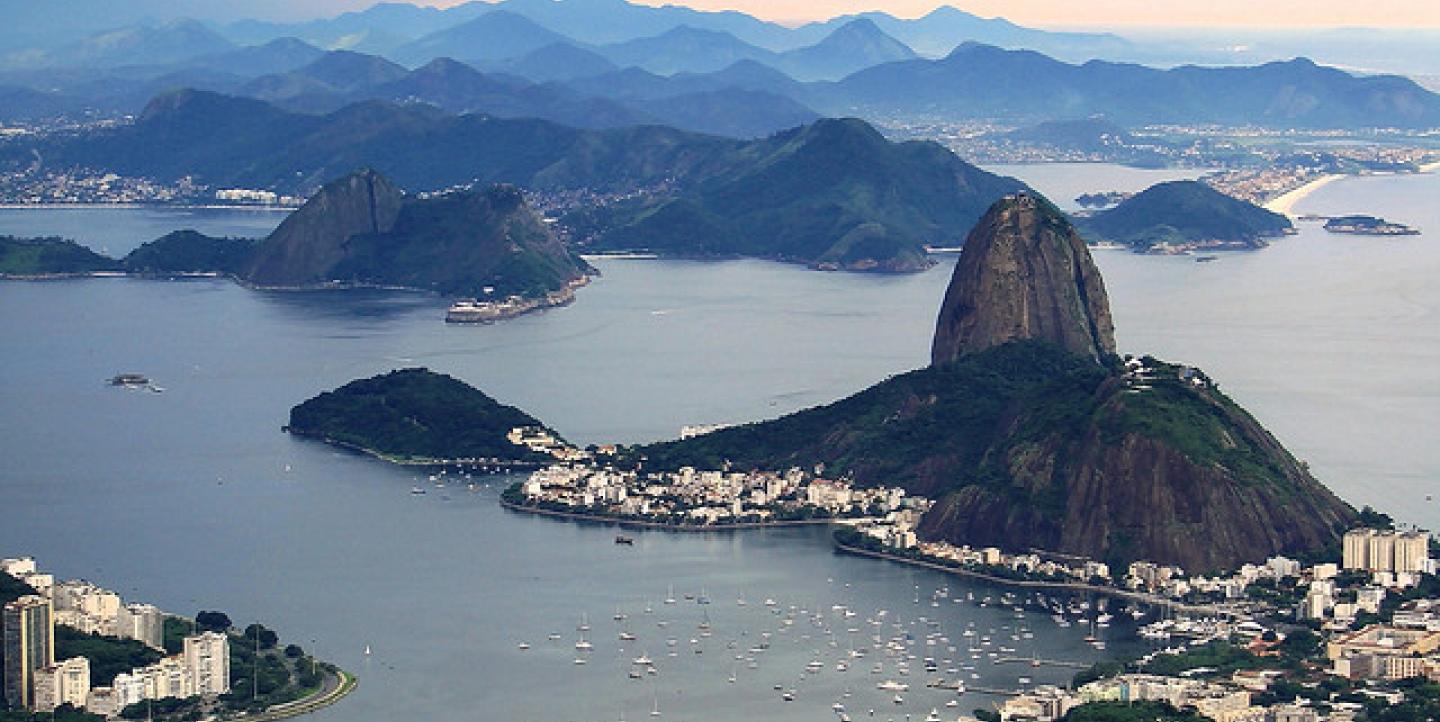Journalists around the world don’t have to wait until next year to start covering the 2016 Olympic Games in Rio de Janeiro, which will open Aug. 5, 2016, with the Paralympic Games starting one month later.
The city has been preparing for these games for the last six years since it won the bid in 2009, and the Olympic Park is now 86 percent complete.
But problems still plague the city and the event’s preparations. To name a few: A recent Associated Press study shows the water quality of the Bay of Guanabara – where sailing events will be held – to be roughly equivalent to sewage water. The city government is using eminent domain to push out the residents of Vila Autódromo, a favela (or informal urban settlement) that sits right on the edge of the Olympic Park. And the city continues to suffer public security issues; Amnesty International recently found that the Rio de Janeiro military police have killed 1,519 residents in the past five years.
International news organizations don’t have to be the first to report about these issues. The news can be directly accessed from on-the-ground sources, especially through social media.
IJNet’s compiled a list of grassroots sources that are often the first to report about these issues affecting preparations for the Rio de Janeiro Olympic and Paralympic Games.
General websites
Rioonwatch.org has been covering the effect of the Olympic and Paralympic Games preparations on Rio de Janeiro’s favelas for the last five years.
At any given time, the website, which is run by Catalytic Communities, has more than a dozen reporters attending community meetings and events and writing reports. The archive is a treasure trove of information on favela evictions, environmental issues and favela gentrification. Rioonwatch.org also recently launched RioONWire, a Twitter news service that provides news and background information on favela issues.
Julia Michaels produces the Riorealblog.com, which she describes as "a critical and constructive view of the transformation of Rio de Janeiro.” She is an American writer who has lived in Brazil for more than 30 years and she created the blog in 2010.
While the blog includes original reporting, the Facebook page curates some of the most important Rio de Janeiro news articles of the day.
Favela evictions and general favela news
The Vila Autódromo favela sits right on the edge of the Olympic Park in the Jacarepaguá neighborhood, which used to be a Formula One race track. The community sprouted there more than 30 years ago.
Right after Rio de Janeiro was awarded the Olympic and Paralympic Games in 2009, Mayor Eduardo Paes announced that the favela would be removed. Favela residents have waged a six-year fight to remain in their homes and it appears that the city is slowly winning. Only 10 percent of the community’s original population remains.
But the campaign to prevent more evictions is strengthening. The Viva Vila Autódromo Facebook page tracks every piece of news out of the community, whether it’s an eviction or visit from a government official.
More than one-fifth of Rio de Janeiro’s population lives in favelas, so journalists should also track the general news out of these communities. Brazil247.com always has a great roundup of favela news on its favela vertical.
And since being profiled in The New York Times, Raul Santiago of Coletivo Papo Reto, has emerged the leading voice of Rio’s favelas. His coletivo tracks news in Rio de Janeiro’s largest favela—Complexo do Alemão. He often posts the latest community news and information directly on the organization’s Facebook page. Another website that reports directly from Complexo do Alemão is Voz das Comunidades, which also has an active Facebook page.
Water quality and the Bay of Guanabara
When Rio de Janeiro bid for the 2016 Olympic and Paralympic Games, it told the International Olympic Committee that its environmental legacy would be cleaning up the polluted Guanabara Bay. As shown by a recent Associated Press study, that promise has not been kept.
Mario Moscatelli is an environmental activist who has been pushing for the cleanup of the bay for the last 20 years. His personal Facebook page features his work to clean up the bay and the latest news and updates.
The INEA is the state environmental group and it regularly tests the safety of Rio de Janeiro’s beaches. This link shows the latest tests of the water at Rio de Janeiro’s beach.
Golf course
Golf will be a new sport in the 2016 Olympic Games. Controversy has surrounded the development of Rio’s Olympic golf course because part of a natural park will be used for its construction.
Rio de Janeiro’s environmental activists have several communities on Facebook that highlight the latest news and activism. Golfe Para Quem and Ocupa Golfe are two Facebook pages that journalists can follow for the latest news and updates.
Public safety
There is significant street crime in the city center so public safety is constantly on the minds of people who live in Rio de Janeiro. Rio de Janeiro’s Instituto de Segurança Pública tracks the city’s crime in detail.
Main image CC-licensed on Flickr via Hudsӧn

